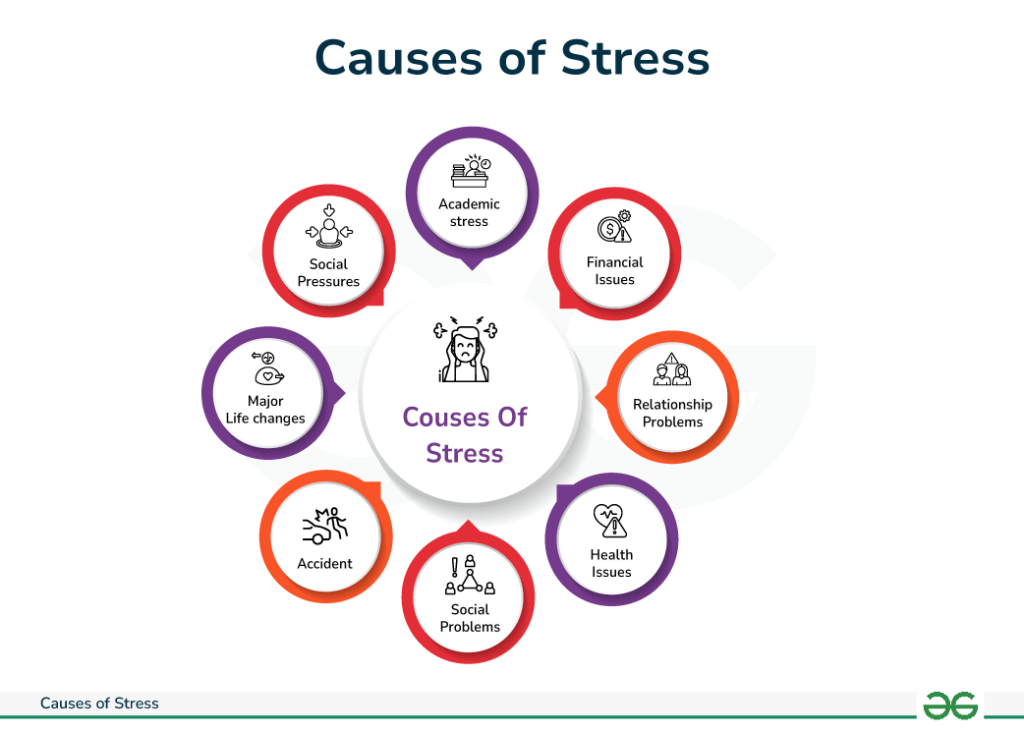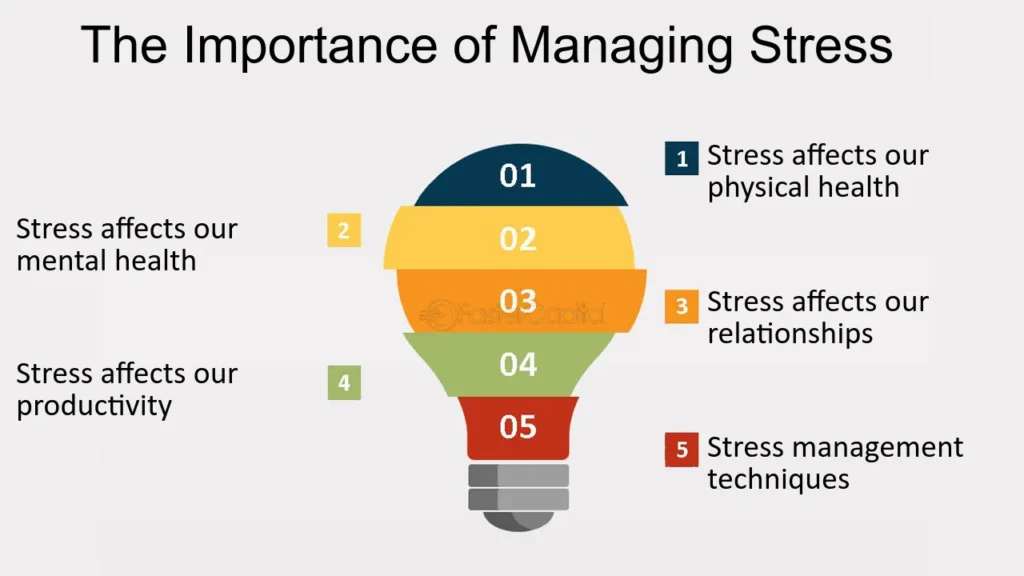Stress is a normal part of life and affects every person. Juggling work deadlines with personal responsibilities is stressful. The bright side, however, is that stress does not have to rule your life. With rational stress management techniques, mental soundness will prevail, productivity will increase, and one can begin enjoying a fuller life.
In this article, we will look into practical tips to keep you on an avenue of managing stress, building resilience and making daily frictional opportunities viable for growth.
Why Stress Management Is Important
If left unmanageable, stress will attack your mental and emotional health alongside your physical well-being. If you don’t control it, stress will eventually lead to anxiety, insomnia, hypertension, and a compromised immune system. In other words, knowing how to manage stress means leading a more refined, purposeful life while paving the way for the successful execution of your personal and professional goals.
Anyone seeking tangible, actionable strategies for stress reduction and building resilience can proceed to the next read.
The Real Causes of Stress
One should know the causes of stress to manage them well. One of the most obvious things that create stress for people is:
1. Pressure at Work: Being confronted with short project deadlines, long working hours, and demanding bosses all create an environment conducive to stress.
2. Financial Problems: Budget constraints, unwanted expenses, and debts often ignite storms in people.
3. Problems with Relationships: Miscommunication, conflicts, or a support void in relationships strains your mental health.
4. Health Problems: Either suffering insufferably from an illness or worrying about a loved one suffering of takes an emotional toll.
5. Corporate World: A primary cause of Stress: If you don’t have the time to work it all out, that can be scary as well.

Proven Strategies for Managing Stress
1. Practice Mindfulness
Mindfulness is the art of remaining present and focused on the present. Mindful meditation practices include, but are not limited to, alleviating overthinking and settling one’s mind.
- Employ some form of deep breathing exercise during a squeezable moment.
- Meditate for around 10-15 minutes a day to help face stress and promote relaxation.
- Engage in yoga, which links physical movement with mental clarity.
2. Prioritize Self-Care
One way to manage stress well is to take care of yourself physically and mentally.
- Make sure you sleep 7-8 hours a night in good quality sleep.
- Eat a well-balanced diet rich in fruits, vegetables, plus lean protein.
- Exercise every day, even if it means spending only 30 minutes out walking.
3. Time Management Skills
When you’re bad at time management, it will oftentimes lead to stress. Here are some simple yet effective tips to further improve your organization.
- Keep a planner or other digital tools handy, scheduling out what needs to be done.
- Divide large assignments into smaller, more manageable assignments.
- Be prepared to say “no” when your plate is fully loaded.
4. Connect with Others
Social support is one of the best ways to confront stress.
- Share your problems with trusted friends and family members.
- Consider joining a support group or community that understands your battle.
- Seek professional counseling if stress seems unmanageable.
5. Develop a Positive Mindset
How they see the challenges can greatly affect the person’s level of stress.
- Instead of concentrating on problems, concentrate on solutions.
- Every day, write down things that you’re grateful for.
- Setbacks are growth opportunities.
Tools for Reducing Stress
1. Apps for Stress Relief
Applications like Calm, Headspace, and Insight Timer give the user guidance through meditations, breathing exercises, and peaceful music.
2. Journaling
Writing down one’s thoughts can help to process through emotions and sometimes gain clarity about stressful situations.
3. Hobbies
Participating in creative pastimes, like painting, gardening, or playing a musical instrument, has been suggested to decrease stress and incite happiness
4. Nature Therapy
One way to increase the good mood and decrease the cortisol level is to spend time outdoors. Take a walk in a park, go hiking, or just sit in your backyard and reconnect with nature.
Stress Management at the Workplace
The workplace is one of the most common causes of stress. Keep calm and efficient with these:
- Prioritization: Use such tools as the Eisenhower matrix to concentrate first on urgent and important work.
- Take short breaks: Rather than exhausting yourself at the desk, step away to clear your head and revive energy.
- Communicate effectively: Remove the issue of increased accountability of one’s workloads with the manager if, in this case, you feel overwhelmed.
Signs You Should Seriously Consider Your Stress
Chronic stress can burn people out when ignored; nonetheless, this remains a stress-adjusted normal reaction. These are some indications:
- Constant feeling of exhaustion or irritability
- Having frequent headaches or stomachaches
- Inability to maintain concentration or to decide
- No involvement or withdrawal from all forms of social interaction
- Feeling overwhelmed, even with small tasks
- If these symptoms persist, you should seek out professional help.
Stress Management: Gaining Benefits
1. Clarity of Mind: Having a calm mind let you make better choices.
2. Better Health: Less stress reduces the risk of getting sick or allow a disease to become aggressive.
3. Productivity: Stress management keeps you focused and efficient.
4. Happy Relationships: Less stress leads to better communication and connection with others.
Look at it this way
Stress is a part of life, but it doesn’t have to define you. By being able to identify the triggers and develop stress management techniques while being proactive in taking care of both your mental and physical health, you can reclaim your life in the end and make it much more balanced and fulfilling.
What are you going to do to begin managing your stress starting from today? Take the first step to becoming a calm and resilient you.




